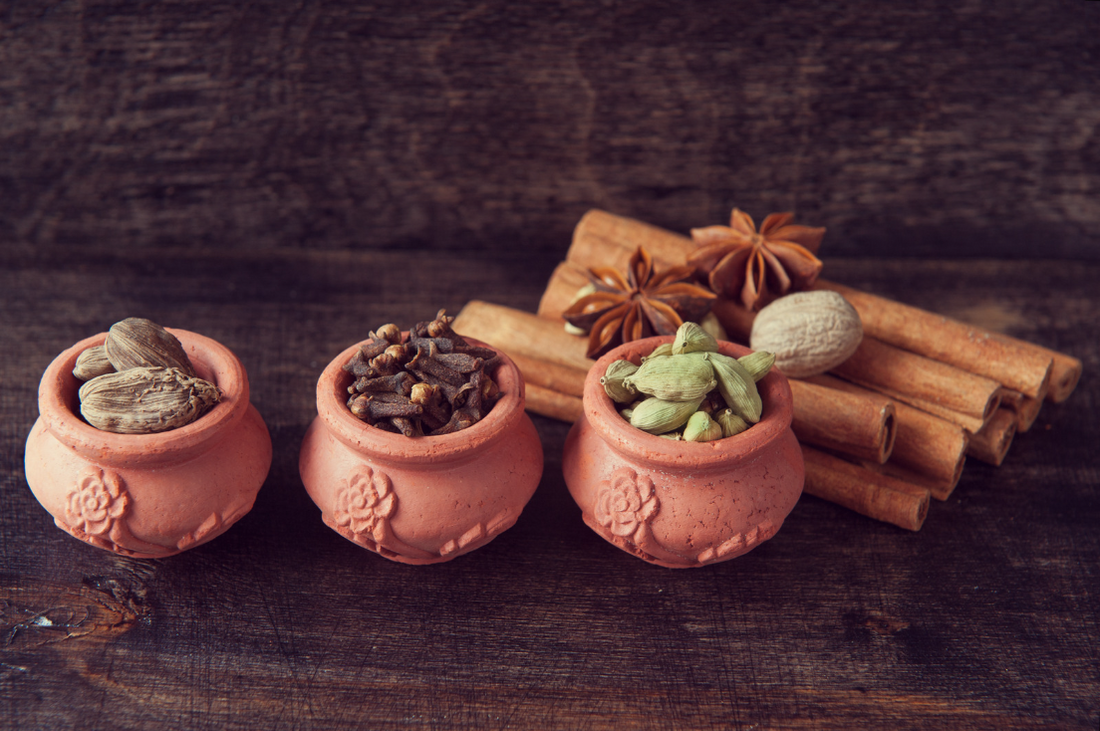
How I Combat Inflammation During Menopause: My Go-To Natural Remedies
Share
Author(s): Saman Khan
Menopause is a powerful transformation, but it comes with its own set of challenges, and inflammation is one of the most common hurdles. This was and is a personal battle for me. Left unchecked, inflammation can lead to more serious health concerns, including autoimmune disorders like lupus.
Through my journey of menopause, I’ve spoken to several doctors, ayurvedic masters and friends and family who are in a similar phase of life and come up with the below list. I have found that small, consistent changes to my daily routine and diet have made a huge difference in taming inflammation. In this post, I’ll share the natural remedies that have worked wonders for me and could help you too.
1. The Power of Diet: Eating to Reduce Inflammation
This is one of the most impactful and most difficult changes to make - overhauling your diet. I can't say I've done this successfully (I love a hot roti with any meal!), but I am trying to be more conscious of the three changes I listed below. What we eat directly affects our body’s inflammatory response, and it’s critical to pay attention to what goes on your plate.
- Ditch gluten and dairy: Gluten and dairy are common culprits that can trigger inflammation, especially during menopause when hormone levels fluctuate. By cutting out both, I noticed a significant decrease in bloating and discomfort.
- Go plant-based: Incorporating more fruits, vegetables, seeds, nuts, and lentils into my diet helped immensely. These foods are rich in antioxidants and healthy fats that combat inflammation naturally.
- Power seeds: Seeds like flax, sunflower, and chia are nutrient-dense and perfect for reducing inflammation. I love adding them to smoothies, salads, or even as a crunchy topping for yogurt alternatives.
2. Healing Chai for Inflammation
There's nothing quite like a warm, soothing chai. But these powerful ingredients aren't just about comfort—the below ingredients in this chai are known for their anti-inflammatory properties as well. Drop these whole spices in boiling water and let the water steep for about 5 minutes before drinking.
Here’s my special blend:
- Mint
- Fennel
- Cinnamon stick
- Green cardamom
- Cloves
- Ginger (the taste of ginger can be overpowering for my taste buds so I tend to leave it out, but it is a powerful ingredient!)
This chai works wonders in calming the digestive system and reducing inflammation. Plus, it’s caffeine-free, so it can be enjoyed any time of day.
3. Why I Swapped Oils for Ghee
When it comes to cooking, I’ve replaced most oils with ghee. Ghee is rich in healthy fats that support hormone balance and reduce inflammation. While it can be fattening, I use it sparingly for its numerous health benefits. Just a small amount enhances the flavor of meals without causing the inflammatory response some oils do.
Dr. Zulfiqar Mir, a board certified medical doctor who has been practicing general medicine for three decades, shares that ghee is anti-inflammatory because it contains beneficial compounds like omega-3s and vitamins A, D, E and K. Ghee also has a higher smoke point, making it ideal for desi cooking. In contrast, seed oils, like canola and sunflower, can promote inflammation due to their high omega-6 content and can form compounds harmful for the body when overheated.
4. Turmeric and Honey: The Ultimate Duo
One of my favorite remedies for inflammation is a warm turmeric and honey milk mixture. However, if you’re avoiding dairy, you can easily substitute with almond, coconut, or oat milk.
To get the best benefits:
- Dissolve turmeric in a little hot (non-dairy) milk.
- Mix in colder milk to reach the right temperature, then add honey.
It’s important that the milk isn’t too hot, as high heat can reduce honey’s healing properties. This golden drink is a soothing way to reduce inflammation and unwind at the end of the day.
5. Neem and Turmeric Balls: My Secret Weapon
Another routine I’ve incorporated is taking one neem ball and one turmeric ball every morning. These are tiny but powerful anti-inflammatory agents.
Here’s how to make them:
- Mix 1 teaspoon of turmeric or neem powder with 1–1.5 teaspoons of water.
- Form the mixture into small, pill-sized balls.
They don’t taste great at first (I won’t lie—it took me a while to get used to them!), but I swallow them like pills now. If the taste is too strong for you, you can sweeten them up by blending in dates or almond butter.
6. Hydration is Key
Lastly, staying hydrated is essential for reducing inflammation. Drinking plenty of water throughout the day flushes out toxins and supports overall health. Herbal teas, like my anti-inflammatory chai, are a great way to stay hydrated while giving your body additional healing properties.
Final Thoughts
Menopause can be a challenging time, especially when inflammation becomes a constant battle. However, natural remedies and dietary changes can offer significant relief. By focusing on anti-inflammatory foods, eliminating gluten and dairy, and incorporating healing ingredients like turmeric, cloves, and ghee, you can manage your symptoms and support your body’s natural healing processes.
With love & gratitude,
Saman

